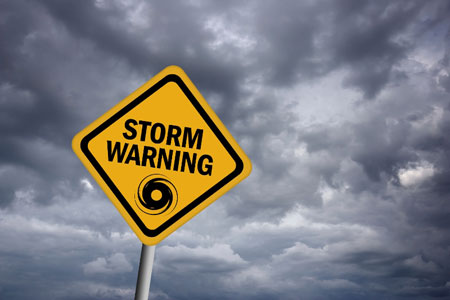The following is a guest post by Daniel Diermeier. Daniel is the IBM Professor of Regulation and Competitive Practices at the Kellogg School of Management at Northwestern University and the director of the Ford Motor Company Center for Global Citizenship.
Daniel’s work has been featured in numerous publications, including The Wall Street Journal, The Economist, Business Week, and Newsweek. He has served as an advisor to Abbott, Accenture, CIBC, ConAgra, Johnson & Johnson, Kraft, McDonald’s, and Shell. After reading his new book, Reputation Rules: Strategies for Building Your Company’s Most Valuable Asset, I invited Daniel to share his insights on crisis management and its impact on an organization’s reputation with my readers.
Business, it seems, has entered the age of crisis. Almost every day, another venerable company or institution finds itself in the headlines, and usually not in a flattering context. In addition to a long list of global corporations, public sector institutions and non-profits are increasing forced to deal with serious crises. Yet, despite this significant change in business climate, the nature of corporate crises is frequently misunderstood. Such misconceptions can lead to severe management mistakes in a crisis situation.
First, all too often crisis management is viewed as the sole responsibility of the public relations or the legal department. This approach overlooks the fact that crisis need to be viewed as business issues closely connected to a company’s identity and position in the market-place. Managing these challenges frequently requires a trade-off between different risks such as legal and reputational risks. By delegating these decisions to any functional unit managers effectively abdicate their responsibility.
Delegation to functional experts also makes it much less likely that crises are prevented before they occur – the most effective form of crisis management. The reason is that once PR specialists or the corporate attorneys become involved the crisis is usually already in full swing – too late for effective crisis management.
A much more effective approach is to view the prevention of crises as the responsibility of management. On the one hand, a company has most control over the situation in the pre-crisis state. On the other hand, many crises originate in routine management decisions. This emphasizes the value of prevention and preparation strategies applied to everyday business practice.
The goal of prevention strategies is to eliminate or significantly reduce crisis risks. In the case of manufacturer this includes quality controls, in the case of an accounting firm or financial services a strong set of values. Adopting such safeguards (and allocating resources to pay for them) is the responsibility of managers.
Second, the crisis is misunderstood. Companies frequently focus on who is at fault (usually somebody else, e.g. a supplier) and who is liable (ideally not the company, of course). While the assessment of potential legal liabilities is an important part of any crisis management strategy, it is only a part. Other important issues that need to be considered are damage to a company’s reputation, its supplier relationships, its effect on customer loyalty, its potential damage on employee morale, and its relationship to regulators, to name just a few. Managers need to balance those effects and integrate them into their strategy choice.
The most important task during a crisis is to reassure all stake-holders. Brands are promises, and these promises needs to be reaffirmed to a crisis. To preserve and rebuild trust companies need to focus on four dimensions: transparency, expertise, commitment, and empathy. Unfortunately, many companies focus on expertise alone, in part because their expertise is their comfort zone, giving them an illusion of control. Leaders need to actively resist this temptation and emphasize all four dimensions.
Third, crises are not only threats. They can also present a (hidden) opportunity. Once a company is in the media spotlight it is effectively on stage, and customers, employees, business partners and external stakeholders are paying attention. Once we pay attention, we remember. So, whatever course of action management takes, it will define its reputation for a long time. Effective crisis management can significantly enhance a company’s reputation, as in Johnson and Johnson’s famous decision to pull Tylenol from retail shelves, or it can damage it as in the case of the Exxon Valdez. These crises happened over two decades ago. Yet, they define the companies’ perceptions to this day.
Finally, crises provide supreme learning opportunities. But too often early warning signs are ignored or the wrong lessons are learned. After settling with the SEC in the Waste Management accounting fraud case, Arthur Andersen changed its document retention policy. It did not sufficiently investigate its culture, value system, or incentive structure.
A company’s values are its guide in a crisis. In turn, a crisis is a great opportunity to see whether these values still govern day-to-day decision making.
Some other posts you may enjoy:


